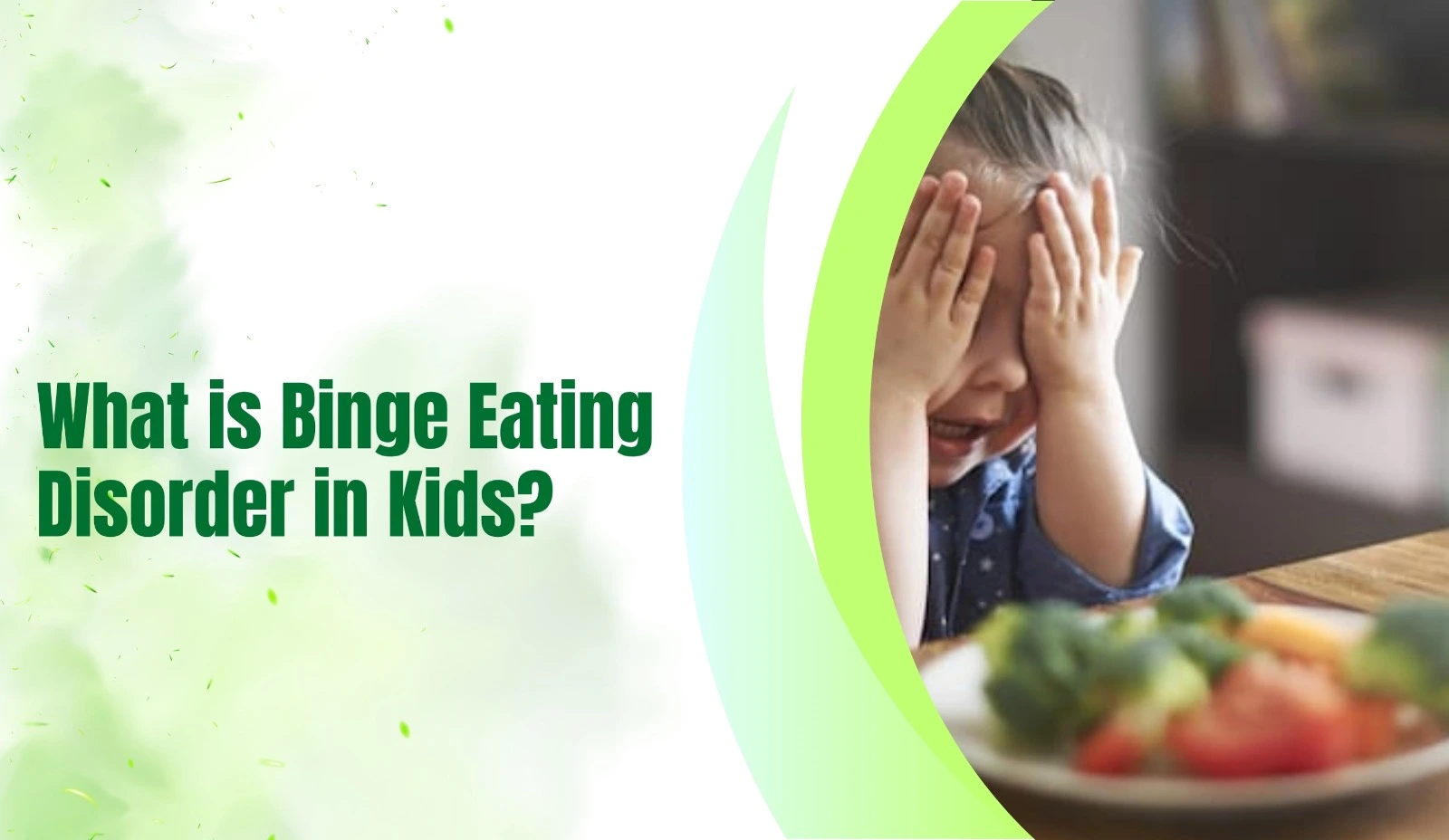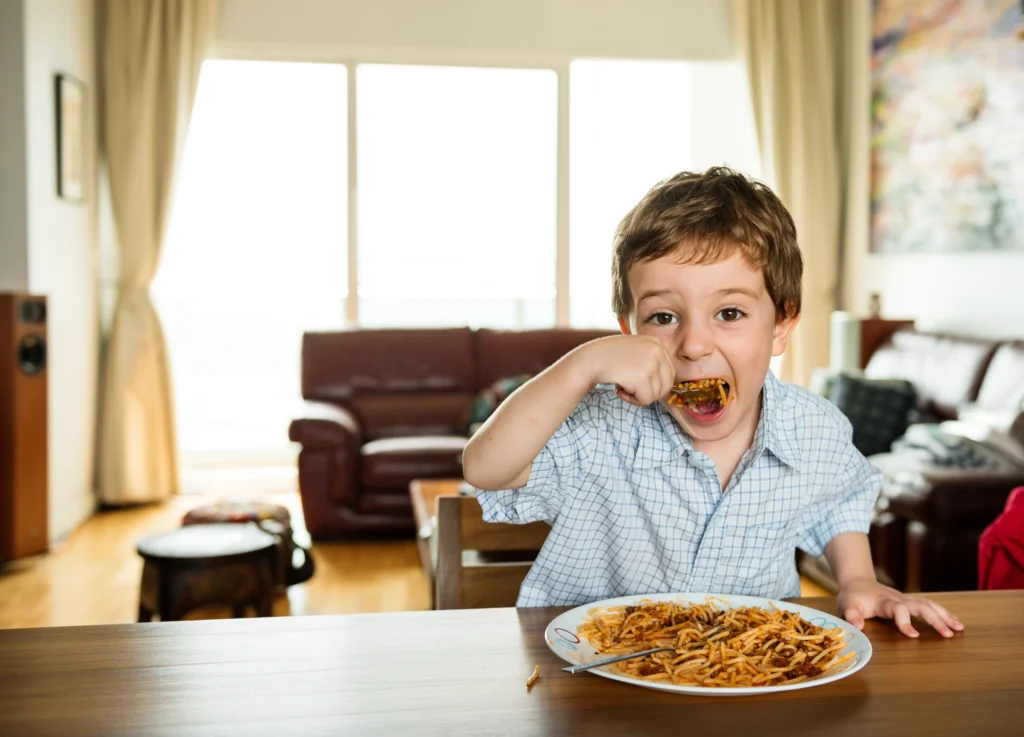-
129, Block-A Bangur Avenue, Mousumi Appartment, Kolkata 700055
129, Block-A Bangur Avenue, Mousumi Appartment, Kolkata 700055

Hello Reader!
Welcome to the blog page of Mind’s Eye by Dr. Rupa Talukdar, one of the best psychological counsellor in Kolkata.
Binge Eating Disorder (BED) is a serious mental health condition that is increasingly affecting children and adolescents. As the best psychological counsellor in Kolkata, I have seen how early recognition and intervention can transform young lives. At Mind’s Eye, our mission is to provide clarity, support, and effective treatment for children and families navigating this challenging disorder.

Binge Eating Disorder is characterized by recurrent episodes where a child consumes unusually large amounts of food in a short period, often accompanied by a feeling of loss of control. Unlike bulimia, children with BED do not regularly engage in compensatory behaviors like vomiting or excessive exercise. After these episodes, children typically feel guilt, shame, or distress, which can impact their self-esteem and relationships.
Understanding the causes of Binge Eating Disorder is crucial for effective intervention. The disorder arises from a combination of biological, psychological, and environmental factors:
Recognizing the symptoms early can lead to better outcomes. Common signs include:
As the best psychological counsellor in Kolkata, I emphasize that Binge Eating Disorder is treatable, especially with early intervention. The most effective treatments include:

Emotional distress—including anxiety, depression, and low self-esteem—is a significant trigger for binge eating episodes, particularly as a maladaptive coping mechanism in individuals with Binge Eating Disorder. Research shows that negative emotions such as sadness, anger, and feelings of loneliness or disappointment often precede binge episodes. Children and adults with BED may turn to food as a way to escape or numb these uncomfortable feelings, or to compensate for unmet emotional needs.
People with Binge Eating Disorder frequently struggle with regulating their emotions. Instead of using adaptive strategies like reappraisal, they are more likely to suppress or ruminate on their unwanted emotions, which can intensify psychological distress and increase the urge to binge eat. This cycle is reinforced because, while binge eating may temporarily distract from emotional pain, it is typically followed by feelings of guilt, shame, or sadness, perpetuating the disorder
Negative emotions specifically trigger binge episodes in Binge Eating Disorder (BED) through a combination of emotional distress and maladaptive emotion regulation strategies. Research indicates that individuals with BED often experience intense negative emotions, such as anger, sadness, disappointment, loneliness, and frustration, before a binge episode. These emotions are frequently linked to interpersonal experiences or internal struggles, and are more severe in individuals with BED compared to those without the disorder.
People with BED tend to suppress or ruminate on their unwanted emotions rather than using healthy coping mechanisms like reappraisal or problem-solving. This suppression increases psychological distress and the urge to binge eat as a way to temporarily escape or down-regulate these negative feelings. Experimental studies have shown that after negative mood induction, individuals with BED report a greater desire to binge and, in some cases, consume more calories than control groups.
The binge eating episode itself serves as a maladaptive attempt to manage or numb emotional pain, offering short-term relief but often leading to increased guilt, shame, and further negative mood afterward, perpetuating the cycle. Thus, negative emotions act as both a trigger and a maintaining factor in BED, highlighting the importance of developing healthier emotion regulation skills in treatment.

Treating Binge Eating Disorder (BED) in children requires a comprehensive, evidence-based approach that addresses psychological, behavioral, and family dynamics. In Kolkata, as in leading centers worldwide, the following treatment options are considered most effective:
CBT is the primary and most evidence-supported therapy for children with Binge Eating Disorder. It helps children identify and change negative thought patterns and behaviors related to food, eating, and body image. CBT teaches strategies to break the cycle of restriction and bingeing, develop regular eating habits, and manage emotional triggers. Research shows CBT leads to significant reductions in binge episodes and improvements in self-esteem and mood.
IPT is also effective, especially for children and adolescents whose binge eating is linked to interpersonal stress or emotional distress. IPT focuses on improving communication skills, resolving conflicts, and building supportive relationships, which can reduce the frequency and severity of binge episodes.
Family-Based Therapy has emerged as the preferred first-line treatment for children and adolescents with eating disorders, including BED. FBT empowers parents to support their child’s healthy eating behaviors, set consistent routines, and address family dynamics that may contribute to binge eating. FBT is structured in stages, gradually returning control of eating to the child as they recover.
Most children with BED can be treated effectively in outpatient settings, where they receive regular therapy and support from a multidisciplinary team. For children needing more intensive support but not hospitalization, day treatment programs (partial hospitalization) offer structured care with therapy, meal support, and skill-building activities during the day while allowing the child to return home in the evenings.
Working with a dietitian or nutritionist is important for helping children develop healthy eating patterns, understand hunger and fullness cues, and reduce guilt or anxiety around food. Nutrition education is often integrated with psychological therapy.
While medications are not the first-line treatment for BED in children, they may be considered in cases with severe symptoms or co-occurring mental health conditions (such as depression or anxiety). Medications are typically used as adjuncts to therapy and should be prescribed and monitored by a specialist.
The best outcomes are achieved when treatment involves collaboration between psychological counsellors, medical professionals, dietitians, and the child’s family. This team-based approach ensures that all aspects of the child’s health and well-being are addressed.

Yes, culturally adapted therapies for kids with binge eating disorder are both possible and increasingly recognized as important in Kolkata and similar multicultural settings. While most research on culturally adapted interventions comes from Western contexts, the principles and approaches are highly relevant and can be tailored to Indian families.
Key Points on Culturally Adapted Therapies:
Also Read: Social Intelligence & Ways To Increase It

Outpatient treatments and inpatient care for children with Binge Eating Disorder (BED) in Kolkata differ mainly in intensity, setting, cost, and the level of monitoring required.
In Kolkata, as in other major cities, outpatient care is the standard for most children with BED, with inpatient care reserved for severe or complex cases. Outpatient treatment can be customized to the local culture, family dynamics, and language, making it both accessible and effective.

1. What is Binge Eating Disorder in kids?
Answer: Binge Eating Disorder (BED) in kids is a condition where a child eats large amounts of food in a short time, often secretly, and feels a loss of control during the episode without any purging behavior afterward.
2. What causes Binge Eating Disorder in children?
Answer: Common causes include emotional stress, low self-esteem, family issues, early dieting, and sometimes biological or genetic factors affecting mood and appetite control.
3. What are the warning signs of Binge Eating Disorder in kids?
Answer: Signs include frequent overeating, hiding food, eating when not hungry, feeling guilty after meals, and noticeable weight gain.
4. Can Binge Eating Disorder affect a child’s health?
Answer: Yes, it can lead to obesity, diabetes, digestive problems, and emotional issues like anxiety, depression, and social withdrawal.
5. How is Binge Eating Disorder treated in children?
Answer: Treatment includes psychological counseling, behavioral therapy, family support, and lifestyle changes. Consulting the best psychological counsellor in Kolkata can help develop an effective recovery plan.
At Mind’s Eye, we offer a multidisciplinary approach to treating Binge Eating Disorder in children. As the best psychological counsellor in Kolkata, I work closely with families, nutritionists, and medical professionals to create personalized treatment plans. Our goal is to empower children to build healthy coping skills, improve self-esteem, and foster a positive relationship with food.